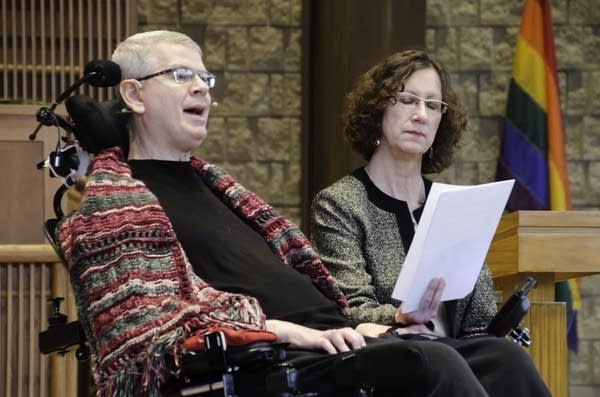Living with ALS: Wrestling with angels

Bruce Kramer, accompanied by his wife, Ev, delivers the 2014 Palm Sunday sermon at Good Samaritan United Methodist Church in Edina, Minn.
Courtesy Dandy Lewis
Go Deeper.
Create an account or log in to save stories.
Like this?
Thanks for liking this story! We have added it to a list of your favorite stories.


